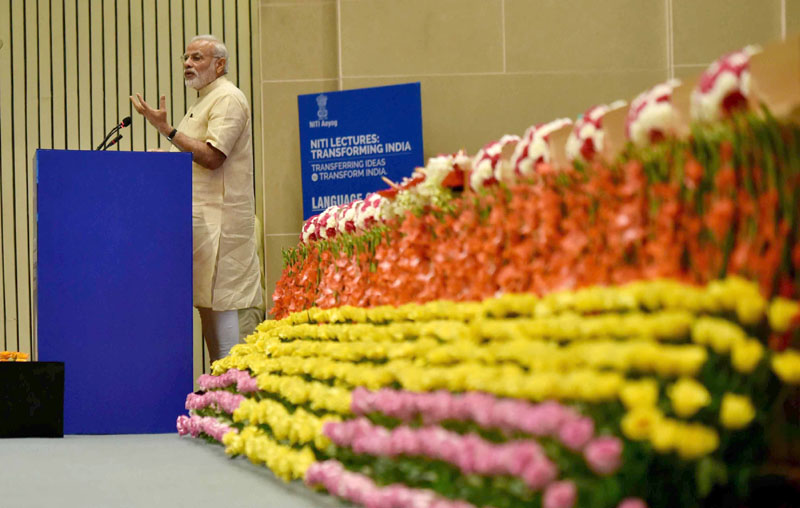• There was a time when development was believed to depend on the quantity of capital and labour. Today we know that it depends as much on the quality of institutions and ideas.
• We must change for both external and internal reasons. Each country has its own experiences, its own resources and its own strengths. Thirty years ago, a country might have been able to look inward and find its own solutions.
Today, countries are inter dependent and inter connected. No country can afford any longer to develop in isolation. Every country has to benchmark its activities to global standards, or else fall behind.
• Change is also necessary for internal reasons. The younger generation in our own country is thinking and aspiring so differently, that government can no longer afford to remain rooted in the past. Even in families, the relationship between the young and old has changed. There was a time when elders in a family knew more than those who were younger. Today, with the spread of new technology, the situation is often reversed. This increases the challenge for government in communicating and in meeting rising expectations.
• If India is to meet the challenge of change, mere incremental progress is not enough. A metamorphosis is needed.That is why my vision for India is rapid transformation, not gradual evolution. The transformation of India cannot happen without a transformation of governance.A transformation of governance cannot happen without a transformation in mind-set.A transformation in mind-set cannot happen without transformative ideas.
• We have to change laws, eliminate unnecessary procedures, speed up processes and adopt technology. We cannot march through the twenty first century with the administrative systems of the nineteenth century.
• Fundamental changes in administrative mindsets usually occur through sudden shocks or crisis. India is fortunate to be a stable democratic polity. In the absence of such shocks, we have to make special efforts to force ourselves to make transformative changes. As individuals, we may absorb new ideas by reading books or articles. Books open the windows of our minds. However, unless we brainstorm collectively, ideas remain confined to individual minds. We often hear of new ideas and understand them. But we do not act upon them, because it is beyond our individual capacity. If we sit together, we will have the collective force to convert ideas into action. What we need is a collective opening of our minds, to let in new, global perspectives. To do this, we have to absorb new ideas collectively rather than individually. It requires a concerted effort.
• Culturally, Indians have always been receptive to ideas from elsewhere. It is said in the Rigveda – “आ नो भद्राः क्रतवो यन्तु विश्वतः”, which means, let us welcome noble thoughts flowing in from all directions.


